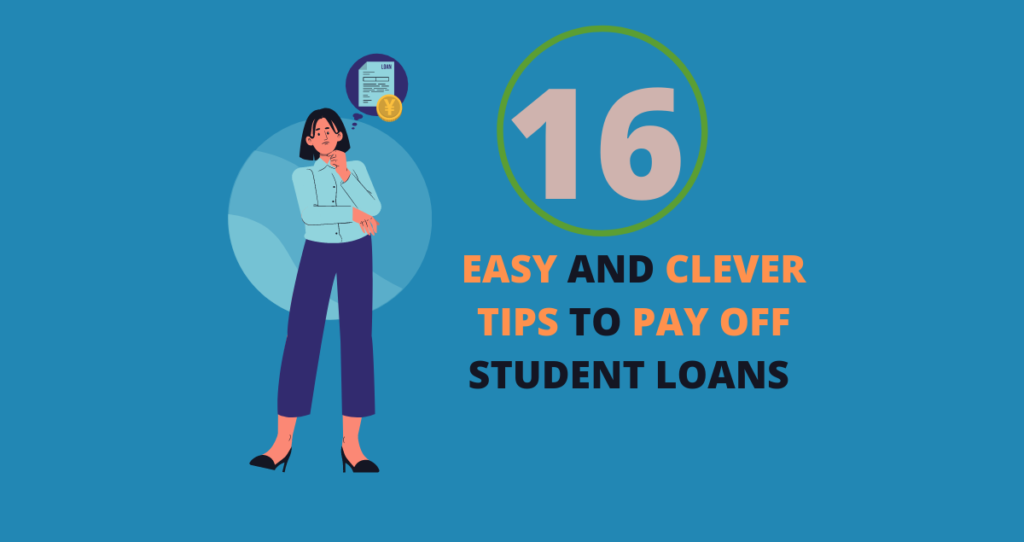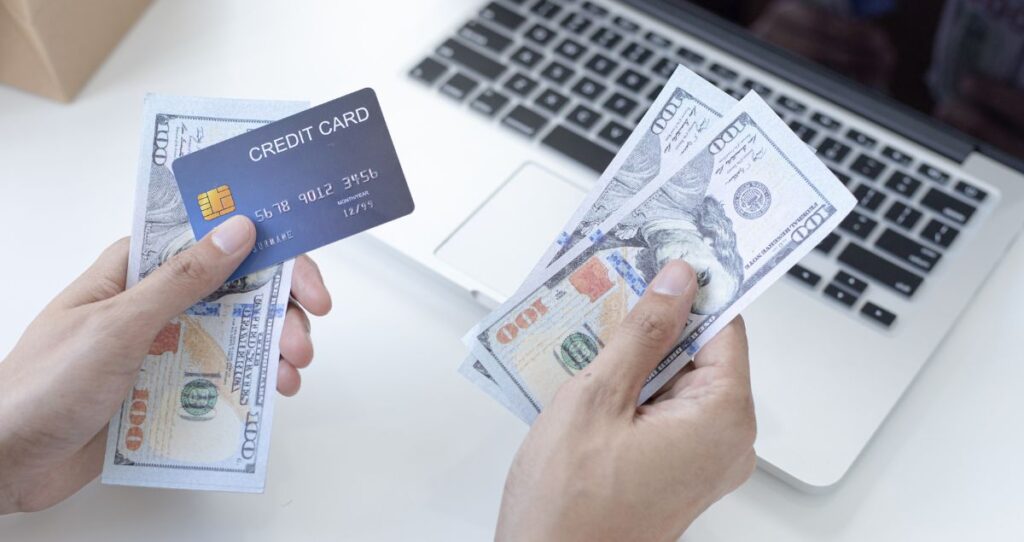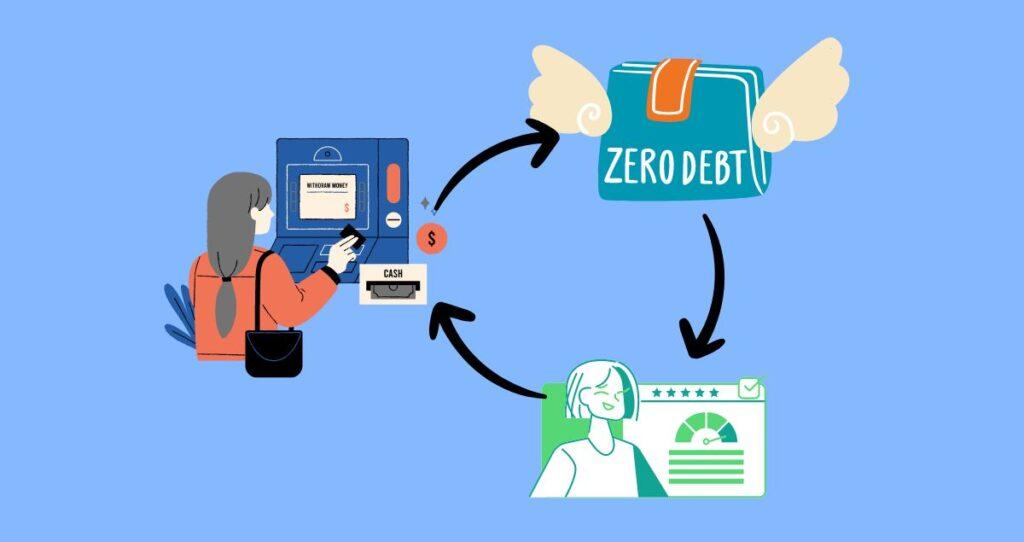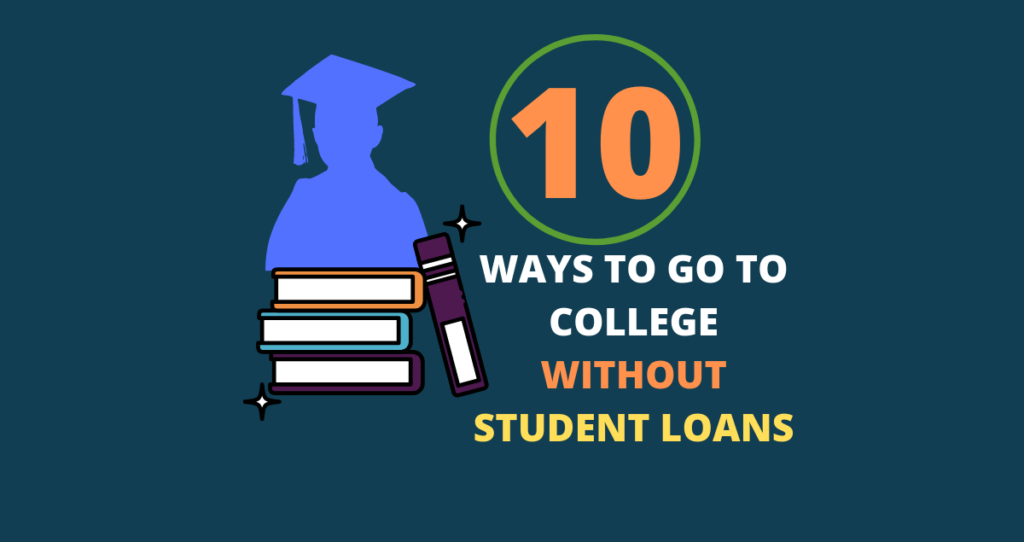Carrying too much debt is one of the biggest reasons many people live paycheck to paycheck their entire lives and lose all the chances to reach financial independence. Having too much debt on a low income makes the matter even worse. While it might be challenging to pay down your debt when living paycheck to paycheck, it does not mean you cannot become debt-free. If you are serious about becoming debt-free on a low income, here is a list of 10 tips to pay down your debts and turn your financial situation around.
Without further ado, let’s get started.
1. Accept your financial situation
Zig Ziglar said, “You cannot solve a problem until you acknowledge that you have one and accept responsibility for solving it“. Just like solving any problem in life, you must acknowledge that you have one and take responsibility for it before you figure out the answer.
Are you living paycheck to paycheck and want to pay off your debt? Well, you can easily achieve this financial goal and the first step is to recognize that you have a debt problem. How much you make usually is not what keeps you in debt for the rest of your life. There are millions of people who pay off their debts and become debt-free on low income. Similarly, there are millions of people around the country who make six figures and still struggle with debt.
Personal example
For example, I paid off my $10,000 credit card debt in 8 months while making $15/hour.
While $10,000 is not a lot of debt compared to what you might have, paying off that much debt while making $15/hr was impressive. You might even be thinking that what I have done is not possible. But, it is possible to become debt-free on low income and this guide will show you how to do it.
So, how was I able to become debt-free on a low income? The first step was to recognize that I had a debt problem. I accepted that I was not making enough money but my debts must go. I gave myself no choice other than to live below my means and used every penny I made to pay off my debts. Know that you have debt, accept your financial situation, and make a plan to pay off your debts.
Take responsibility for your debts to become debt-free on low-income
The reason many people never become debt-free is that they never accept their debts or take responsibility for them. They are always blaming someone else for being in debt. If they are not blaming the government for not forgiving their student loans, they blame the IRS for too much taxes. Blaming someone else for your problem builds a cage around yourself and makes it harder to think. You can’t become debt-free if you don’t feel responsible for your debts.
You must understand that you are responsible for your debts and take essential steps to reduce your debts.
2. Create a budget
Creating a personal budget has a lot of benefits for your finances. A budget is like your best friend. Most people never understand how to become debt-free on low income because they don’t know how low their incomes are in the first place. And those who understand their incomes, have no ideas how to properly use their incomes to cover their expenses and pay off their debts.
That is why a budget is critical especially when you want to become debt-free on low income.
A budget shows you exactly how much you are making and how you are spending it to the last penny.
Why is this important to organize your income using a budget? Because you need to understand whether your expenses are worth it or not. You need to know where you might be overspending to help you cut back on expenses. I can attest to you that before I started budgeting my money, I was always guessing and making random purchases that were not needed or budgeted for. And during this time, I was having financial troubles.
Read more: 7 steps to make a personal budget
Every penny counts
When you live on a low income, every penny counts. You cannot afford to spend extravagantly knowing that you have debt to pay off. You don’t have that luxury. And if you have not figured out a way to get out of debt on low income, it is because you don’t budget your money. You just spend and keep paying the minimum payments which puts you in more debt as the interest and charges accumulate.
You have got to do something about this. Go ahead and create a personal budget and make sure that every expense is tracked. Use your budget and analyze expenses you are having that should not be there. For example, you don’t need to buy drinks from vending machines every time you are at work. You might think that it is just $5. But, in reality, you will pay $1,825 by the end of the year if you buy one drink every day from the vending machine.
You might also like: 8 budgeting mistakes you need to avoid at all cost
Use your budget to lower expenses
Evaluate your needs and wants inside your budget then reduce how much you spend on needs and eliminate most of your wants. For example, food is a need but you don’t need to buy the most expensive food to make a delicious and healthy dinner. Your Netflix is a want. But, you don’t need to have every streaming service available to be satisfied. If you have 5 or six streaming services, cancel them and only keep one.
You can repeat this strategy on every expense you have. As long as you lower how much you pay on needs and eliminate unnecessary wants, you will easily free some cash to help you pay more on your debts and become debt-free on low income very fast.
Use the 50-30-20 budget rule to help you organize your needs, wants, and savings. Again, it is possible to become debt-free on a low income but you must be willing to give up something. Everything good comes at a price and delayed gratitude is the price you must pay to get out of debt when you don’t make enough money.
This is perhaps one of the most fundamental steps in financial management. Create a detailed budget outlining your income and expenses. This will help you control your spending and understand where your money is going.
Related budgeting articles:
- How to talk to your spouse about budgeting?
- 12 Habits of Debt-free People
- 6 important tips to create a balanced budget in 2022
- 8 clever ways to live on a tight budget
3. Prioritize your debts
The most important step in becoming debt-free on a low income is to prioritize your debts. You cannot pay off debt if you don’t make it a priority. You have to recognize the need to get out of debt.
There are two steps involved in paying off debts just like solving any other life challenge.
- Knowing that you have debt and have full conviction about it in your subconscious
- Taking action to pay off your debt.
Most people recognize that they have debts but they never take action. Without action, they keep accumulating more debts to a level where they declare bankruptcy. To pay off your debts and become debt-free on a low income, you need to first be aware that you have debt and then take action.
You need to make your debts a priority and make the adjustments necessary to pay them off. Earlier, I mentioned that I paid off $10,000 in just 8 months while making $15/hour. How was I able to do it? I made adjustments in my life and my finances. I stayed with friends to cut back on living expenses, changed my shopping habits, worked overtime, and purchased cheap things.
I put my debt on top of the list of things I must take care of and everything else followed. If something was not helping me pay off my debt, I did not get involved with it. If something was costing me unnecessary money that I could use to pay off my debts, I did not buy it. I followed this rule no matter who got offended or got hurt in the process. Because becoming debt-free on a low income was my top priority. You need to follow the same steps if you desire to become debt-free while living paycheck to paycheck.
How to prioritize your debts?
Start by creating a list of all your debts and organizing them. You can organize your debts according to their sizes or based on interest rates. Identifying which debt to tackle first can make the process less overwhelming. For example, if you decide to organize your debts from the lowest dollar value to the highest, paying them off in this order can help you take control of them and become debt-free in no time. This strategy is known as the debt snowball method where you pay off the lowest debt first while meeting the minimum payments on each debt.
You can also organize your debts from the highest interest rate to the lowest and pay them off in that order. With this debt management strategy, you get out of debt faster because you automatically lower interest charges on your debts. This strategy is known as the debt avalanche method and it is best for someone who wants to pay off debt aggressively.
No matter the debt payment strategy you choose, the first debt on your list must be your priority. Just focus on that single debt while meeting the minimum payments on other debts until it is fully paid off. Debt, move to the next debt on the list until all your debts are eliminated.
Related: Debt snowball vs. debt avalanche: What is their difference?
4. Cut down unnecessary expenses
Earlier, I mentioned that creating a budget is an essential step to becoming debt-free while living on a low income. While that is true, creating a budget won’t be enough unless you can use it to minimize your expenses and increase your savings. After creating a budget, you need to use it as a tool to lower expenses.
One of the best ways to lower expenses is to buy only what you need and pay the lowest price possible. This means that you need to take advantage of all kinds of discounts such as shopping at clearance, using coupons, getting cash back, and using your air miles and points to travel. You should also avoid buying brand-name products and never do impulse shopping.
Shopping with a list is also one of the best ways to avoid buying things you don’t need. Check out this complete list of how to not buy things you don’t need to save more money. You will also need to bargain on different financial services to lower your utility bills and minimize your living expenses. If you constantly eat out, figure out a way to make meals at home and save more money. If you want to become debt-free on a low income, you have no business in dining out every day.
4. Increase your income
If you want to become debt-free on low income, a fast way to get out of debt is to boost your income. Increasing your income allows you to have extra cash which you can use to increase your monthly debt payment. The more money you allocate toward your debts, the faster you pay them off.
There are many strategies to increase your income. The most effective and easiest way to get paid more money is to negotiate a higher salary with your current job. You can also apply for a higher-paying position within the same company or in a different company. Picking up a part-time job and using your take home to pay off your debts is another way to get out of debt fast.
Another good way to increase your income is to pick up a side hustle. What makes side hustles a fast lane to making more money and paying off your debts is that you can easily start making money by monetizing the knowledge you already have. For example, if you are a teacher, you can easily start a tutoring side hustle without learning anything new.
Websites like Fiverr, Upwork, and freelancer.com are great places to look for side hustles. Freelance work is usually the best way to make money as you monetize your knowledge without doing extra work. You can also sell items online such as crafts, paintings, or digital items on websites like Etsy, Amazon, and Poshmark.
If you have clothes lying around or your house is cluttered, consider downsizing and selling items you don’t need to raise money. Any extra cash you make from selling your items or flipping products online can easily be used to pay down your debts.
Related posts:
- 16 Best places to sell used clothes online for cash
- 7 Best websites to sell unused gift cards online
- 7 best websites to make money writing book reviews
- 49 easy ways to make money fast: A complete guide
6. Pay more than the minimum requirements
If you have been struggling with your debts for a while, it is more likely that you pay the minimum payment. Paying the minimum payment makes it difficult to pay down your debts on a low income. When you pay the minimum payment, your debt goes higher because of higher interest charges. For example, if you pay the minimum payment on your credit cards, it will prolong your debts which leads to growing over time due to compounding interest.
For example, if you have $10,000 in credit card debt at 25% APR and the required minimum payment is $200, don’t just pay the $200 and chill. It is a trap. By paying only $200, you will be carrying $9,800. By carrying this much balance on your credit card, you will pay over $204(0.25*9800/12) in interest charges each month.
What if you paid higher than the minimum payment? Let’s assume you paid $2,000 instead. In this case, you will carry $8,000. By paying $2,000 on your debts, you only get charged $167 (0.25*8000/12) in interest charges for each month and your debt does not grow as fast.
To become debt-free on a low income, try to pay more than the minimum amount. This strategy will lower the effect of interest charges on your debts and make it easy to pay them off. Any extra cash you allocate toward your debt gets you closer to a debt-free lifestyle faster.
7. Create an emergency fund
Setting aside some money for emergencies will prevent you from getting further into debt when you experience unplanned costly expenses. If you are living on a low income, you cannot afford to get into further debt. If you have not saved for emergencies, however, costly expenses such as medical bills, car repairs, or a sudden loss of a job can easily force you to borrow more money before you become debt-free.
To prevent yourself from getting into financial hardships or borrowing more money, save for an emergency fund. Since you live paycheck to paycheck, the easiest way to save for emergencies is to put aside a few hundred dollars or whatever you can afford until you have reached the correct emergency fund savings.
A good emergency fund should have 3 to 6 months of your monthly expenses. For example, if your monthly expense is $1,500, you should between $4,500 to $9,000 in your emergency fund.
8. Seek professional help
Becoming debt-free on low income is not an easy task. Not only that you need a debt management strategy, but you also need to have discipline and follow the strategy you have established. Very often, you might give up or get lost in the strategy itself. It is also possible that you don’t have the knowledge or resources to cope with all the debts you have.
This does not mean you cannot pay down your debt on low income. There are still different resources you can use to get out of debt fast. One of these debt strategies is to seek professional help. Professional help can come from your financial advisor, free resources offered by your government such as debt relief programs, or negotiating with your lenders for lower rates, debt forgiveness, balance transfers, etc. Another strategy to help you become debt-free on a low income is to consolidate your debts. For example, if you have higher-interest credit card debts, you can consolidate your balances on an intro 0% APR credit card. This will allow you to pay off your debts faster as your payments cover the principal instead of paying interest charges.
You can also seek help from a debt counseling organization in your local city to help you restructure your finances, organize your debts, and give you regular financial advice to stay on track.
9. Stay persistent
Just like anything important in life, real success comes from hard work and persistence, and it can take a long time before you realize success. Paying off debt also follows this pattern. Unless you have a lot of money which I believe you don’t, it will take you time and a lot of sacrifices to pay off your debts.
During this time, you need to stay focused and focus your mind and body on your financial goal which is paying off your debts and reaching financial independence. It might take you a long time to become debt-free, but if you stay consistent in your strategy, you will eventually get out of debt and enjoy your life.
10. Celebrate small victories
One of the best ways to stay motivated when paying off debt is to reward yourself and celebrate small victories. For example, you can reward yourself every time you finish paying off one of your debts. Celebrating these victories will help you stay motivated throughout your journey to becoming debt-free on a low income. The celebration does not have to be expensive. For example, you can treat yourself to a nice restaurant. You can also spend quality time with loved ones and celebrate with a cookout. Anything you do that reminds you that you have done something great and made a major step in your finances will be good enough for a small win celebration.









